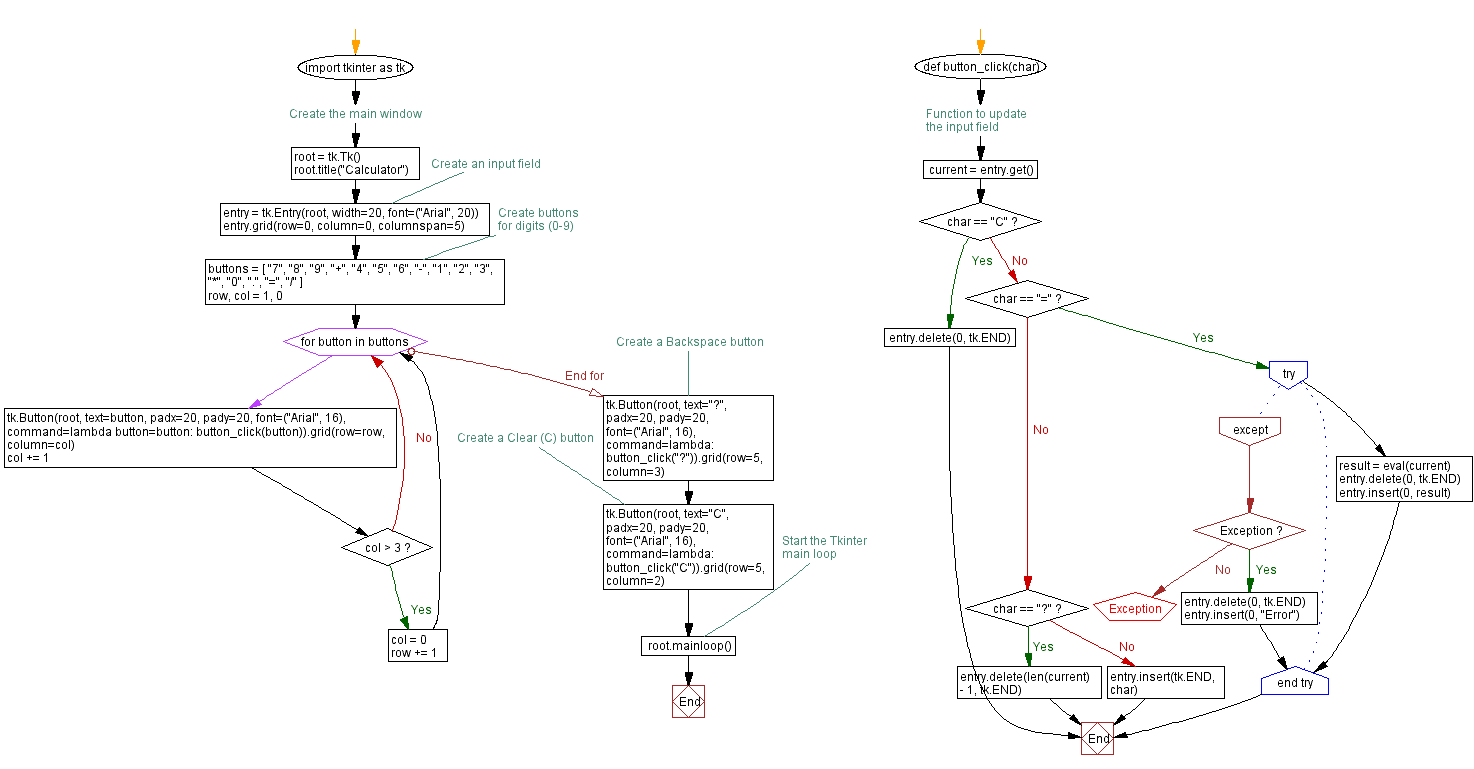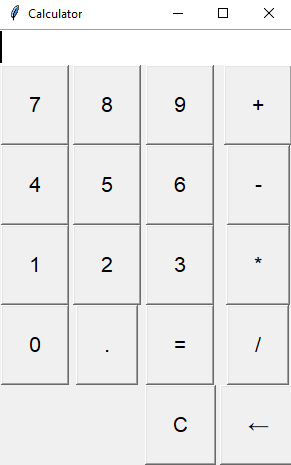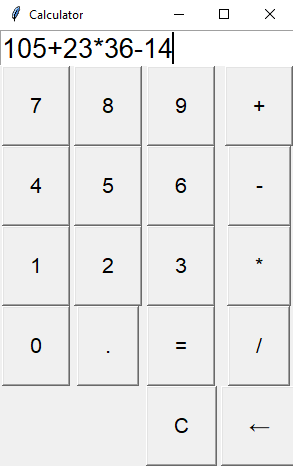Python Tkinter simple calculator example
Write a Python program that implements a simple calculator application using Tkinter with buttons for digits (0-9) and arithmetic operators (+, -, *, /). Implement event handling to calculate.
Sample Solution:
Python Code:
import tkinter as tk
# Function to update the input field
def button_click(char):
current = entry.get()
if char == "C":
entry.delete(0, tk.END)
elif char == "=":
try:
result = eval(current)
entry.delete(0, tk.END)
entry.insert(0, result)
except Exception:
entry.delete(0, tk.END)
entry.insert(0, "Error")
elif char == "←":
entry.delete(len(current) - 1, tk.END)
else:
entry.insert(tk.END, char)
# Create the main window
root = tk.Tk()
root.title("Calculator")
# Create an input field
entry = tk.Entry(root, width=20, font=("Arial", 20))
entry.grid(row=0, column=0, columnspan=5)
# Create buttons for digits (0-9)
buttons = [
"7", "8", "9", "+",
"4", "5", "6", "-",
"1", "2", "3", "*",
"0", ".", "=", "/"
]
row, col = 1, 0
for button in buttons:
tk.Button(root, text=button, padx=20, pady=20, font=("Arial", 16),
command=lambda button=button: button_click(button)).grid(row=row, column=col)
col += 1
if col > 3:
col = 0
row += 1
# Create a Backspace button
tk.Button(root, text="←", padx=20, pady=20, font=("Arial", 16),
command=lambda: button_click("←")).grid(row=5, column=3)
# Create a Clear (C) button
tk.Button(root, text="C", padx=20, pady=20, font=("Arial", 16),
command=lambda: button_click("C")).grid(row=5, column=2)
# Start the Tkinter main loop
root.mainloop()
Explanation:
In the exercise above -
- Import the "tkinter" module.
- Define functions "button_click(), "clear", and calculate for handling button clicks.
- Create the main Tkinter window root and set its title.
- Create an input field using 'tk.Entry' for displaying and entering expressions.
- Create buttons for digits (0-9) and operators (+, -, *, /) using tk.Button, and we bind the button_click function to each button to update the input field.
- Create Clear (C), Equals (=) buttons and add a Backspace (←) button that, when clicked, deletes the last character from the input field. We bind the clear and calculate functions to these buttons.
- Finally, start the Tkinter main loop with root.mainloop().
Output:
Flowchart:

Go to:
Previous: Python Tkinter label and button example.
Next: Python Tkinter Listbox example with event handling.
Python Code Editor:
What is the difficulty level of this exercise?
Test your Programming skills with w3resource's quiz.


